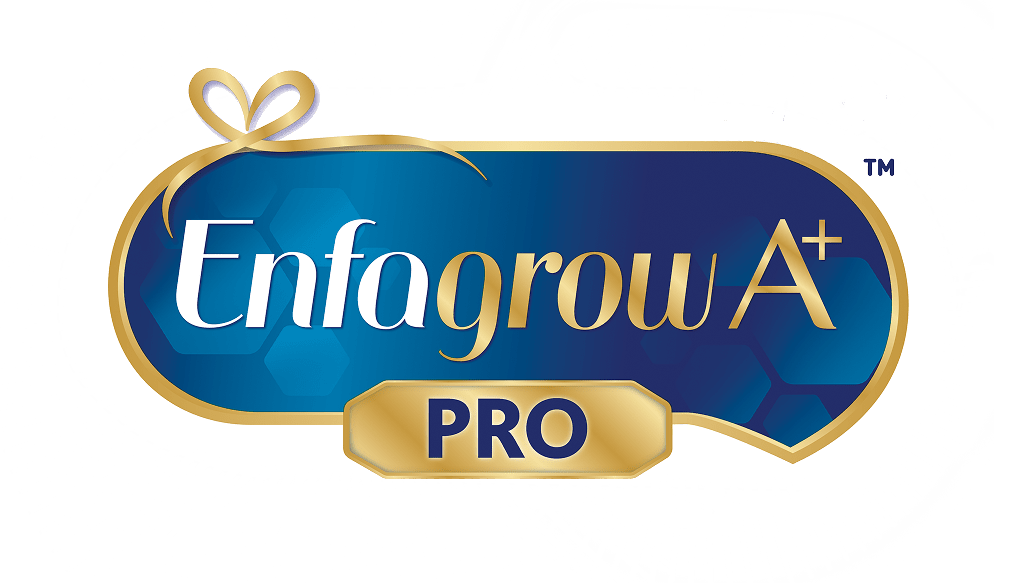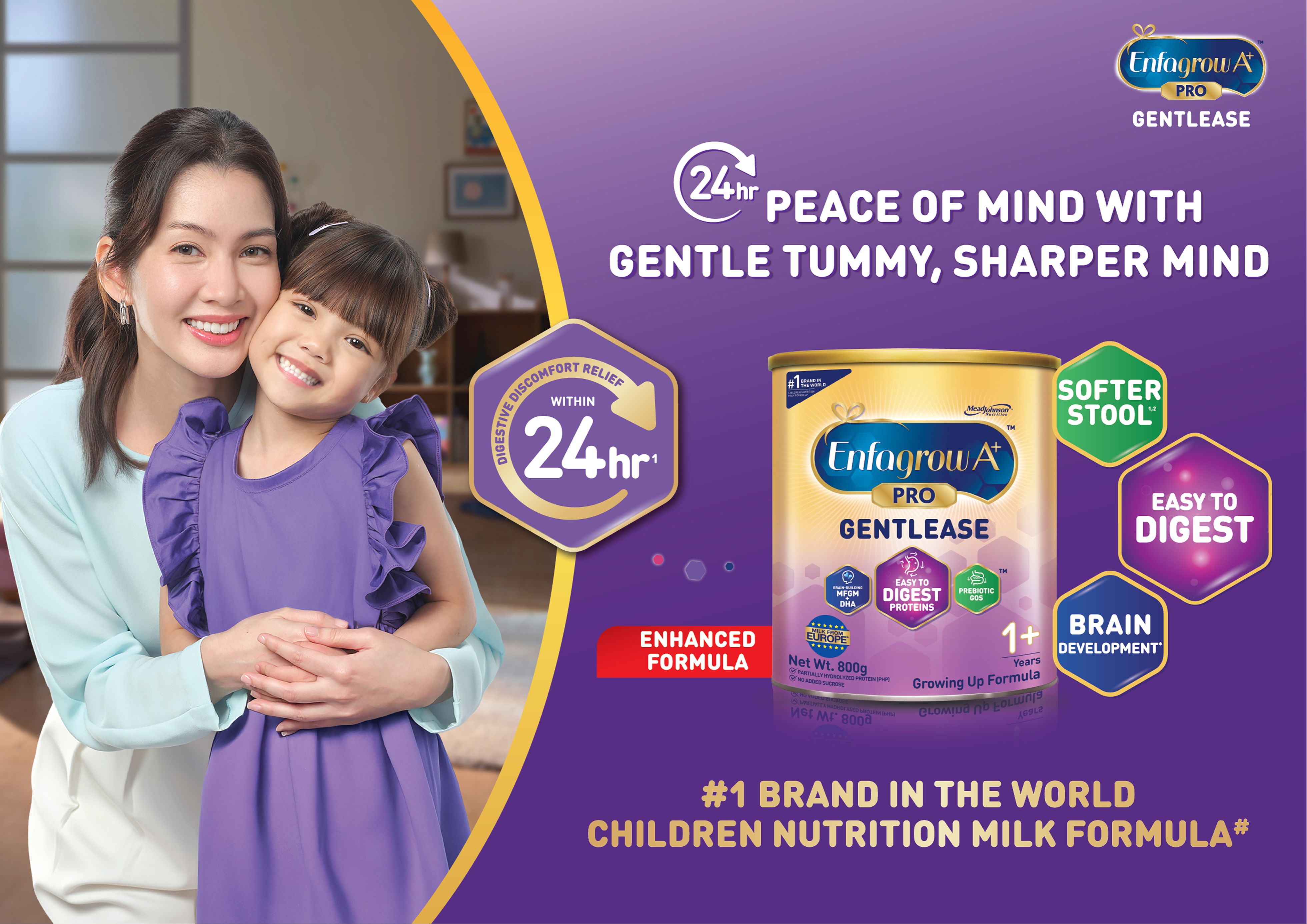

Your child has come a long way since they were born — especially when it comes to motor skills development. Motor skills development refers to your child’s progress in their ability to move. To visualize, think of your baby and recall how in the first few days of their life, they could only turn their head towards the sound of your voice. Over time, they were able to roll over, crawl, and eventually sit, then stand on their own.
Generally, motor skills development is sequential and age-related1; however, please remember that each child is unique. One child’s development doesn’t necessarily have to be like that of another child, so don’t worry if your child’s friends are running with ease. Every child develops at their own pace. The good news is that there are ways to improve motor skills in children.
What Are The Benefits of Motor Skills Development?
Motor skills development is crucial not just for movement but also for physical strength and development. When kids have excellent motor skills, they’ll be able to explore their surroundings through walking and running, lift some objects to satisfy their curiosity, and write when it’s time for them to go to school.
In other words, motor skills are crucial because they’re going to use them throughout their lives.
The Types of Motor Skills
Before we talk about the ways to improve motor skills in kids, let’s first briefly explain the types of motor skills:
Gross Motor Skills - These refer to movements kids can do by using the large muscle groups of their arms, legs, and torso. Examples include walking, running, and jumping.
Fine Motor Skills - These refer to the movements kids can do by using smaller muscles. It involves the coordination of wrists, fingers, and hands. Examples include grasping, drawing, and being able to cut using scissors2.
How to Help Your Child’s Motor Skills Development
Now that we have a better understanding of gross motor skills and fine motor skills, let’s discuss the ways to improve motor skills in kids.
The first step is to manage your expectations. Remember that motor skills development is sequential and age-related, so if your child is not yet ready to perform one kind of movement yet, he or she won’t be able to do it no matter how much you “train” them for it.
For example, at 12 months, it’s unlikely for your little one to be able to scribble on a piece of paper using crayons or turn the pages of a book. He or she might be able to do these actions when they reach 13 to 18 months of age.
The best thing parents and guardians can do is to encourage and further develop the motor skills their child can already do.
With this in mind, below are some tips to encourage your child’s motor skills development:
Activities to Help Improve Motor Skills According to Age
Here are some activities that can help your child develop their motor functions.
Motor skills development at 12 - 18 months
At around the one year mark, children are able to stand alone, and may have already started walking. Accompany your child as they learn how to walk with support, or even by themselves4.
Encourage your child to move. During this period, your child may be able to crawl or start to walk up the stairs.
It also helps to introduce them to books. While they won’t be able to read, they may also be able to turn the pages of books, at two or three pages at a time. And while they won't be drawing yet, they can scribble spontaneously.
Getting the proper nutrition is also important for development. Enfagrow Pro A+ Stage 3 milk formula (for 1 to 3 years old) contains nutrients like DHA, MFGM (Milk Fat Globule Membrane) and 2’-FL. The unique blend of nutrients help to support your child’s overall mental and physical development. Click here to get free Enfagrow Pro A+ Stage 3 samples delivered to you!)
Motor Skills Development at 18 months - 2 years
Playing games with your child may help promote gross motor skills. By 18 months, your child should be able to run and throw a ball6.
Your child may also appreciate art activities, as they begin holding pens or crayons properly, with their thumb and finger tips11.
At this age, it also helps to encourage your child's increasing independence. For instance, allow them to help when they are being dressed or fed7.
As your child grows, nutrition remains essential to their physical and mental development.
Motor Skills Development at 2 - 2.5 years
By 30 months, the child will have more advanced gross motor skills, and will be able to stand on one leg and walk on tiptoes. It helps to teach your child games like 'red light, green light', which further involves more complicated movements like running, stopping, and changing direction.
Their fine motor skills help to let them play with building blocks, and to copy lines and circles9.
You may also help them brush their teeth and pull up their pants, as they are beginning to develop the ability to do so8.
Motor Skills Development at 2.5 - 3 years
Your child may now do more complex motor movements. They may benefit from learning to ride a tricycle, as they are now able to use the pedals.
During this period, the child’s fine motor skills are further refined. The child will be able to fold paper in half and draw straight lines and circles. They may even be able to use a pair of scissors. They will also be able to use a fork to eat10. It may also help them to play with puzzle boards, beginning with easy puzzles that don't interlock, and gradually moving on to pieces that do9.
Encouraging as much movement as possible is a great way to improve motor skills. Parents can do this by giving children toys that promote movement and allowing them to spend time playing outdoors.
It is also important to give your child the nutrients they need as they continue to develop. In addition to the nutrients your child gets from food, growing up milk formulas may further support the development of your growing toddler. (Click here to get free Enfagrow Pro A+ Stage 3 samples delivered to you!)
Through motor skills development activities and good nutrition, you are equipping your child with valuable skills they can use throughout their life and helping them get the best start possible.
Support your child’s nutrition with Enfagrow Pro A+. With a unique blend of nutrients such as MFGM, 2’-FL and 360° DHA Plus, Enfagrow Pro A+ growing up milk formula helps support your child's overall development.
REFERENCES:
- Motor Skills Development. (n.d.). Welcome to ECDA,
https://www.ecda.gov.sg/growatbeanstalk/Documents/MOE%20NEL%20Resources/NEL_educators%20guide%20vol%205_motorskillsdev.pdf. Accessed Aug. 16, 2021. - Do gross and fine motor skills differentially contribute to language outcomes? A systematic review. (n.d.). Frontiers,
https://www.frontiersin.org/articles/10.3389/fpsyg.2019.02670/full#:~:text=Motor%20development%20is%20often%20broadly,%2C%20object%20manipulation%2C%20or%20drawing. Accessed Aug. 16, 2021. - Your growing baby. (n.d.). HealthHub,
https://www.healthhub.sg/live-healthy/9/guide_your_growing_baby. Accessed Aug. 16, 2021. - Your Child’s Development: 1 Year (12 Months). (February 2020). Nemours,
https://kidshealth.org/en/parents/development-12mos.html. Accessed Oct. 22, 2021 - Developmental milestones 12 to 18 months (2021). Children's Minnesota,
https://www.childrensmn.org/educationmaterials/childrensmn/article/15317/developmental-milestones-12-to-18-months-/. Accessed Oct. 22, 2021 - Your Child's Development: 1.5 Years (18 Months). (February 2020). Nemours,
https://kidshealth.org/en/parents/development-18mos.html. Accessed Oct. 22, 2021 - Toddlers (1-2 years of age). (February 2021). CDC,
https://www.cdc.gov/ncbddd/childdevelopment/positiveparenting/toddlers.html. Accessed Oct. 22, 2021 - Your Child’s Development: 2.5 Years (30 Months). (January 2021). Nemours,
https://kidshealth.org/en/parents/development-30mos.html. Accessed Oct. 22, 2021 - Developmental Skills for Ages 2 to 3 Years. (2010). Amplatz Children's Hospital: University of Minnesota,
https://www.fairview.org/fv/groups/internet/documents/web_content/developmen_201009262104505.pdf. Accessed Oct. 22, 2021 - Toddler Developmental Milestones, (2011). Children's Therapy & Family Resource Centre,
http://www.kamloopschildrenstherapy.org/fine-motor-skills-toddler-milestones. Accessed Oct. 22, 2021 - Fine motor skills: birth to 2 years (n.d.), Children's Hospital of Richmond at VCU
https://www.chrichmond.org/therapy-services/occupational-therapy/developmental-milestones/fine-motor-skills-birth-to-2-years. Accessed Oct. 22, 2021





